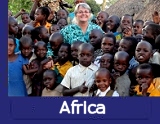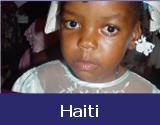 |
Contact usUnited Caribbean TrustUCT Guyana visitGuyana schoolsWomen's NGOsCitizens Initiative
Adopt a family |
home >> caribbean
>> guyana>>
 United Nations Commission for Latin America and the Caribbean Guyana Citizens Initiative for Flood Relief (GCIFR), as part of its ongoing work to minimize the impact of the recent flood and influence the crafting of an improved future disaster mitigation and management plan, on Tuesday, March 2, 2005 met with a team from the United Nations Commission for Latin America and the Caribbean (ECLAC). It was ECLAC’s second meeting with GCIFR since the beginning of their assessment mission. The five-member team is headed by UNECLAC official, Erik Blommestein, who explained that their mission is aimed at helping Guyana, like any other similarly affected country, attract much needed resources to improve the livelihood of those affected by the disaster. “The reason a government would ask us to come in and do an objective assessment is that they want some validity to ask for resources," UNECLAC's Social Affairs Officer, Dr. Asha Kambon, told the GCIFR's team. At the end of the more than two-hour meeting, Blommestein said "we learned a lot and it was part of the process of consultations," which is ongoing. A second round of discussions with GCIFR is scheduled for later this week. The ECLAC team commended the GCIFR for its work in communities and for its systematic gathering of important data about the impact of the flood on health, sanitation, and livelihoods.  GCIFR
made available to the team several reports and other documents, including
an assessment of the impact on the vital agriculture sector in the Mahaica
and Mahaicony areas, where cash-crops, rice and cattle farms were devastated
after water was released into the Mahaica river from the East Demerara Water
Conservancy (EDWC) to avoid a potentially catastrophic breach of its earthen
dam. GCIFR
made available to the team several reports and other documents, including
an assessment of the impact on the vital agriculture sector in the Mahaica
and Mahaicony areas, where cash-crops, rice and cattle farms were devastated
after water was released into the Mahaica river from the East Demerara Water
Conservancy (EDWC) to avoid a potentially catastrophic breach of its earthen
dam.GCIFR also briefed the assessment team about efforts being made, through community initiatives, to grapple with the immense garbage disposal problems created by the flood, especially in the East Coast Demerara villages. GCIFR activists reported on the continuing initiatives to provide counselling to women still traumatised by the flood, as well as on the organisation’s work with cash-crop farmers in the East Coast villages. In response to questions about the possible mechanisms to move the relief effort forward, GCIFR commended the proposals set out by Professor Clive Thomas for the creation of an independent Trust Fund administered by both government and non-government personnel into which all relief and reconstruction money is paid and which would be audited by an “outside/independent” firm. |

 


|
| Copyright © 2022 www.UnitedCaribbean.com. All rights reserved. Disclaimer Click to Contact us |